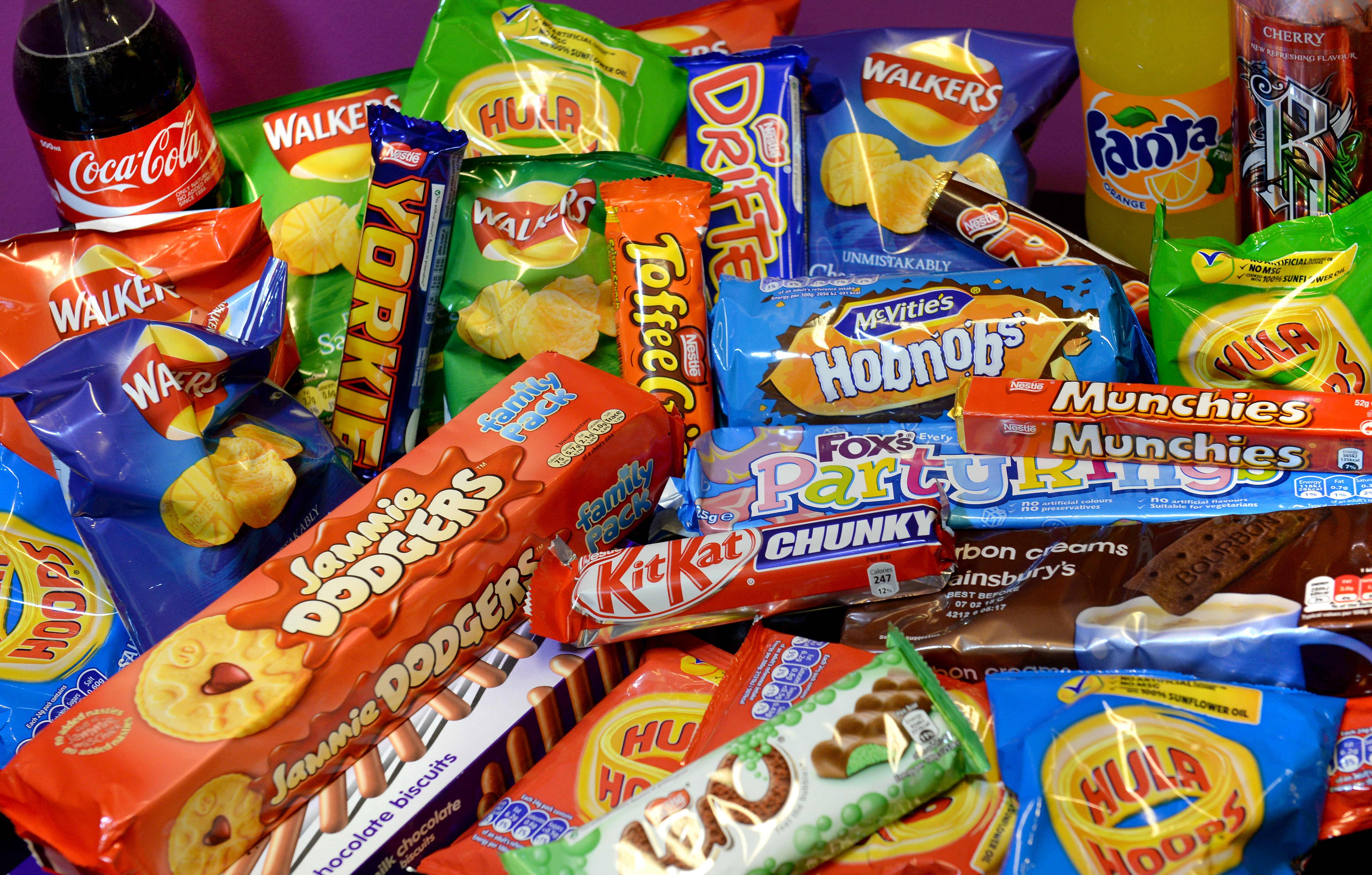Tax should drive down sugar in sweet foods, not hit consumers – report author
Henry Dimbleby, author of the independent National Food Strategy, has called for action to break the ‘junk food cycle’.

Taxes on sugar should be implemented to drive down its use in sweet foods – and will not hit ordinary customers, the author of a new food strategy has said.
The independent National Food Strategy has called for a Sugar and Salt Reformulation Tax as part of efforts to transform the nation’s diet to include less sugar, salt and meat to save lives and protect the NHS and the environment.
It warns that what we eat, and how it is produced, is doing “terrible damage” to the environment and health, contributing to 64,000 deaths a year in England, and driving wildlife loss and climate change – which in turn put food security at risk.
Housing Secretary Robert Jenrick told LBC Radio that the Government should be “very cautious before putting burdens on members of the public, particularly those on lower incomes”, as he does not want to make life more difficult.
But food entrepreneur Henry Dimbleby who led the National Food Strategy review, said action is needed to break the “junk food cycle” between consumers and food companies.
He told BBC Breakfast that taxes on sugar recommended by his report are unlikely to have an impact on ordinary consumers, with the aim being to drive down the amount of sugar in sweet foods, rather than simply charge more for them.
He said there needs to be a change from thinking that people need to exercise and exert willpower to tackle food-related disease – which is not true, as it is an interaction between companies’ commercial incentives and people’s appetites.
“We find these foods that they’re marketing delicious, they don’t make us as full as quickly – we eat more, they invest more.
“You’re not going to break this junk food cycle … unless you tackle it directly, and that is what we are recommending with the Sugar and Salt Reformulation Tax,” he said.
His report said some money raised by the tax should be spent on addressing the inequalities around food, by expanding free school meals, funding holiday activity and food clubs, and providing healthy food to low-income families.
It urges the Government to run trials giving GPs the option to prescribe fruit and vegetables for patients suffering from poor diets or food insecurity, while food education should be central to the national curriculum, to reverse declines in cooking skills and knowledge.
While the report says meat consumption should be cut by 30% in a decade to cut emissions and free up land for storing carbon and preserving nature, it rules out a meat tax as politically impossible and unpopular.
Instead, the review urges the Government to “nudge” consumers into changing their meat-eating habits, for example by investing in alternative proteins.
It also calls on ministers to make sure the budget for payments for farmers to deliver environmental benefits, such as restoring nature, preventing floods and improving soils, is guaranteed until at least 2029.
And the payments need to be generous enough for land managers to make the switch from conventional farming to more sustainable options.
Food standards must be protected in any new trade deals to safeguard British farmers from unfair competition or even being bankrupted, and to prevent environmental damage from food production exported abroad, it urged.
National Farmers’ Union president Minette Batters said the report should be a wake-up call that people need to value the food they eat, but warned that distinctions need to be made between sustainable, nutritious, grass-fed British meat and cheap imports.
“This strategy says major reform is needed of the food system. I would suggest we first look at the actions our Government is taking by agreeing to trade deals that welcomes in imported meat in limitless amounts,” she said.
The report warned that disease caused by poor diets costs the economy an estimated £74 billion a year, and puts a huge strain on the NHS, while the food we eat accounts for around a quarter of greenhouse gases and is the leading driver of habitat and wildlife loss.
In the UK, agriculture alone accounts for 10% of emissions, while contributing less than 1% of economic output, and livestock accounts for 85% of the farmland that feeds the UK both here and abroad, some of which domestically must be freed up for climate and nature initiatives such as creating woodlands.
To meet existing Government targets on health, climate and nature, by 2032 fruit and vegetable consumption will need to increase by 30% and fibre by 50%.
At the same time, consumption of food high in saturated fat, salt and sugar will have to go down by 25%, and meat consumption should reduce by 30%.
The National Food Strategy estimates its recommendations will cost around £1.4 billion a year and bring in £2.9 billion to £3.4 billion a year in direct revenue to the Treasury, with a long-term economic benefit of up to £126 billion.
The report has been backed by campaigners, including TV chef Jamie Oliver who said: “If both Government and businesses are willing to take bold action and prioritise the public’s health, then we have an incredible opportunity to create a much fairer and more sustainable food system for all families.”
Shadow environment secretary Luke Pollard said the report is a massive wake-up call to fix Britain’s broken food system, but accused the Government of being incapable of ending the food bank scandal and obesity crisis, and making trade deals that betray British farmers.
Mr Dimbleby said recommendations in his report are doable and powerful but it is up to the Government to decide if it will implement them.
Environment Secretary George Eustice said: “This Government will carefully consider its conclusions and respond with a White Paper within six months, setting out our priorities for the food system.”
Bookmark popover
Removed from bookmarks